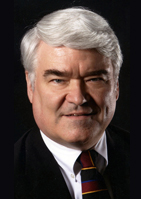© 2014 The Texas Lawbook.
By Janet Elliott — AUSTIN (September 2) — A deeply divided Texas Supreme Court ruled last Friday that Zachry Construction Corp. can seek damages from the Port of Houston Authority for project delays despite a “no-damages-for-delay” contract provision.
In a case closely watched by local governments across Texas, the state’s highest court split 5-4 on whether Zachry should be able to recover $20 million in delay costs under a contract to build a wharf on the Bayport Ship Channel. The delays resulted from changes in the size of the wharf.
A number of cities, counties and governmental entities — including Dallas, Fort Worth, Houston and the DFW Airport — filed amicus briefs in support of the port authority. They argued that governmental entities need contractual certainty to protect taxpayer interests.
Contractor groups sided with Zachry, arguing that local governments should not be allowed to intentionally breach a contract and then hide behind certain provisions.
Chief Justice Nathan Hecht, writing for the majority, said Zachry’s claim is not barred by sovereign immunity or the contract’s language stating that Zachry shall receive no financial compensation for delays, even if they result from negligence, breach of contract or other fault of the port authority.
The court also said that contracts do not have to specify recoverable damages to meet the requirements of the Local Government Contract Claims Act, which waives a local governmental entity’s immunity against lawsuits to allow contractors to recover the “balance due and owed” under the contract.

Enforcing contractual provisions that exempt a party from liability for harm caused intentionally or recklessly is unenforceable on grounds of public policy, Chief Justice Hecht said.
“To conclude otherwise would incentivize wrongful conduct and damage contractual relations,” the chief justice wrote. “This conclusion is supported by lower court decisions in Texas and court decisions in at least 28 American jurisdictions.”
Justice Jeffrey Boyd wrote a dissent, joined by Justices Phil Johnson, Don Willett and Debra Lehrmann. Justice Boyd said that even after voiding the no-damages-for-delay clause for public policy reasons, the contract does not require the port authority to pay Zachry’s delay costs because such costs are not part of the balance due and owed.
“I do not agree that a ‘balance due and owed… under a contract’ includes all common law damages regardless of whether they are contemplated in the parties’ contract,” he said.
The decision reverses a ruling from the 14th Court of Appeals, which held that the no-delay-damages provision barred Zachry’s recovery. The Supreme Court remanded the case for consideration of other issues raised by the port.
Tara Snowden, a spokeswoman for Zachry, said the company is pleased with the ruling.
“This decision is a win for fairness in contracts, which will benefit both contractors and government owners,” Snowden said. “The Texas Supreme Court’s action will increase competition for publicly funded projects by encouraging responsible contractors to pursue work in Texas without the fear of intentional and uncompensated interference in the performance of their work.
“We remain interested in reaching an acceptable, and final, resolution,” she said.

The Houston Port Authority will ask the high court for a rehearing, said Marie Yeates, a Vinson & Elkins partner in Houston. She said the majority’s focus on intentional misconduct stems from jury charges that the port authority objected to during the trial.
Yeates said the case attracted intense interest because the stakes are so high.
“If you open up a local governmental entity to whatever damages may be allowed under common law, it makes it difficult to budget and protect the common fisc,” said Yeates. “It puts all manner of uncertainty into the contracting process.”
Zachry’s case was argued by Douglas Alexander of Austin’s Alexander Dubose Jefferson & Townsend.
© 2014 The Texas Lawbook. Content of The Texas Lawbook is controlled and protected by specific licensing agreements with our subscribers and under federal copyright laws. Any distribution of this content without the consent of The Texas Lawbook is prohibited.
If you see any inaccuracy in any article in The Texas Lawbook, please contact us. Our goal is content that is 100% true and accurate. Thank you.
